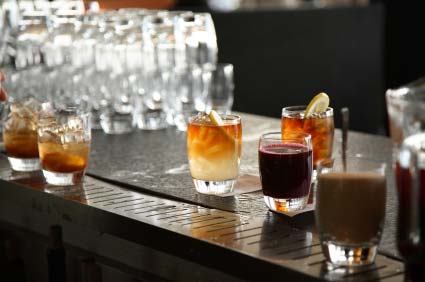On September 14, 2015, Deep Ellum Brewery took legal action against the Texas Alcohol Beverage Commission (TABC) in an effort to overturn what the company describes as an archaic law that unfairly limits its ability to compete with brewpubs, distilleries and wineries in the state. Many of the laws governing the sale of alcoholic beverages in the Lone Star State were enacted during Prohibition and have not been seriously revisited since that time. In 2013, the increasing popularity of craft beer led to reduced restrictions on its sale for on-site sales and consumption at microbreweries and brewpubs; however, more must be done to even the playing field for all companies with a current TABC license.
Unequal Treatment of Businesses
The law prohibiting breweries from selling their products for off-site consumption is particularly unfair because other businesses are not constrained by these regulations. For instance, wineries and distilleries can sell their products on-site for carryout and consumption elsewhere. This difference in how businesses are treated under TABC regulations can have a significant effect on the profitability of craft breweries in the competitive marketplace. The lawsuit filed by Deep Ellum Brewery is intended to even the playing field for breweries and to provide added options for consumers in the state of Texas.
Other Legal Challenges to TABC
Earlier this year, Wal-Mart filed suit against the TABC to overturn legislation that prevents the mega-corporation from selling alcohol. TABC regulations prevent public companies from selling hard alcohol of any kind and limit private companies to ownership of five or less liquor stores unless the permits for additional stores are purchased from a blood relative. If this lawsuit is successful, Wal-Mart could soon enter the retail alcohol market in Texas, presenting even more competition for breweries that cannot even offer carryout sales for their current customers.
Big Corporations Still Calling the Tune
The 2013 legislation that offered a small measure of relief for beleaguered craft beer producers was orchestrated in part by Rick Donley, the president of the Beer Alliance of Texas. While his efforts did provide some much-needed breathing room for small-scale craft breweries, the adjustments fell far short of the changes needed to ensure profitability and public access to the products of small craft brewers. Donley has advised a wait-and-see attitude for craft breweries interested in pursuing further reforms and changes to bring Texas law into the 21st century. Many brewers, however, feel that they have waited long enough for their chance to compete on a level playing field with other businesses in the Texas alcoholic beverage industry.
Fast Growth Fuels Friction
One obstacle to TABC reform is the pressure from other elements of the industry to retain the status quo. Craft beer producers have seen an enormous increase in popularity over the past decade. These added sales are due in large part to increased consumer awareness of the quality and variety of products available through these small-scale breweries. Larger companies and distributors have a real stake in preventing craft breweries from making further inroads into their markets and have brought pressure to bear on regulators to stop any further expansion of opportunities in this fast-growing sector of the industry.
Depending on the outcome of both the Deep Ellum and the Wal-Mart lawsuits, craft breweries may see significant changes in the next few years. Acquiring and maintaining a Houston beer license can be the key to taking advantage of the potential new opportunities in the take-out alcohol marketplace. Additionally, a Houston liquor license can allow these businesses to operate under current laws and to serve customers who wish to consume beverages on-site during their visit. By staying on the right side of the law and working to improve the regulatory environment for their operations, craft breweries can continue to achieve growth and profitability in the Houston marketplace.

